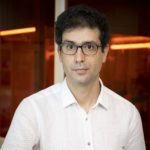Présentation
Organs-on-Chips are micro-engineered systems that recapitulate the tissue microenvironment. Each Organ-Chip, which is composed of a clear flexible polymer, is about the size of an AA battery and contains tiny hollow channels lined with living cells. The Chips are cultured under continuous flow within engineered 3D microenvironments that go beyond conventional 3D in vitro models by recapitulating in vivo intercellular interactions, spatiotemporal gradients, vascular perfusion, and mechanical forces — all key drivers of cell architecture, differentiated function, and gene expression.
In this presentation we will discuss data from studies conducted with academic, clinical, and industry collaborators that demonstrates the utility of the system, as a human-relevant alternative for modeling human disease, as well as for efficacy and preclinical safety testing of new therapeutic agents. In one case, we investigated the potential for our Lung-Chip to demonstrate response to injury upon exposure of the epithelial side to clinically relevant doses of inflammatory cytokines and bacterial-derived stimulants, that triggered characteristic inflammatory response measured by cytokine release (IL-6, IL-8, MCP-1), loss of barrier function and characteristic morphologies. The presence of a vascular channel in the chip provides physiologically-relevant support of the epithelium, enables the introduction of immune cells and the elucidation of the role of endothelium in disease phenotypes. In another case, development of Intestinal-Chip with human organoids is used to dissect the contribution of different intestinal epithelial cells in the physiological function of the human gut. The implementation of Organs-on-Chips technology in biomedical research provides human-relevant, patient-specific models to understand pathogenesis and characterize the specifics of the heterogeneity in disease phenotypes and the associated responses to therapeutics.
Localisation
Bâtiment: François Jacob
Adresse: Institut Pasteur, Rue du Docteur Roux, Paris, France


